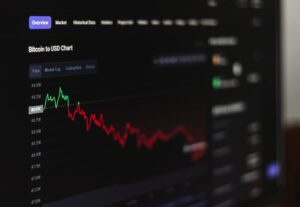Title: The Ultimate Guide to Understanding Forex Trading Taxes in the USA
Introduction:
Forex trading has gained immense popularity in recent years, attracting individuals from all walks of life who are looking to take advantage of the global currency market. However, one aspect that often remains unclear for many traders is the tax implications of forex trading in the United States. This comprehensive guide aims to shed light on the subject, providing traders with a clear understanding of the tax obligations they may have when engaging in forex trading activities.
Understanding Forex Trading:
Forex trading refers to the buying and selling of currencies with the aim of making a profit from the fluctuations in their exchange rates. The forex market operates 24 hours a day, five days a week, allowing traders to access global markets and capitalize on market movements.
Taxation of Forex Trading in the USA:
The Internal Revenue Service (IRS) classifies forex trading as speculative in nature, making it subject to capital gains tax. As a result, profits and losses incurred in forex trading are treated as capital gains and losses, which are reported on Schedule D of the individual tax return form.
Taxable Events:
For tax purposes, forex trading generates taxable events when a trader realizes a gain or loss. These events occur when a trade is closed, resulting in either a profit or a loss. The taxable events include:
1. Profitable Trades: If a trader closes a trade with a profit, it is considered a taxable event. The profit is added to the trader’s total income and taxed at the applicable income tax rate.
2. Loss-Making Trades: If a trader closes a trade with a loss, it is also considered a taxable event. Losses can be used to offset any gains made during the tax year. However, if losses exceed gains, the excess can be deducted against other types of income, such as wages or salary, up to a certain limit.
Tax Rates:
The tax rates applicable to forex trading depend on the trader’s overall income and filing status. In the United States, the tax rates for long-term capital gains (assets held for more than one year) are generally lower than the rates for short-term capital gains (assets held for one year or less). It is important for traders to consult a tax professional to determine the exact tax rates applicable to their specific situation.
Tax Reporting:
To accurately report forex trading taxes, traders must maintain detailed records of all trades, including dates, times, currencies, amounts, and profits or losses. These records serve as evidence of trading activity and are essential during tax filing.
Traders can use various tools, such as online trading platforms and third-party software, to generate reports that provide a comprehensive overview of their trading activity. These reports can simplify the tax reporting process and help ensure accuracy.
Tax Strategies:
To minimize tax liabilities, traders can employ several strategies:
1. Tax Loss Harvesting: This strategy involves deliberately realizing losses to offset gains and reduce taxable income. Traders can sell losing trades toward the end of the tax year to offset gains made earlier in the year.
2. Entity Formation: Some traders may consider forming a legal entity, such as a limited liability company (LLC), to take advantage of potential tax benefits. However, consulting a tax professional is crucial to ensure compliance with all applicable tax laws and regulations.
3. Retirement Accounts: Traders can explore the option of trading within a self-directed Individual Retirement Account (IRA) or a Solo 401(k) plan, which offer tax advantages. These retirement accounts provide tax-deferred or tax-free growth, depending on the account type.
Conclusion:
Understanding the tax implications of forex trading in the USA is essential to ensure compliance with the IRS regulations. By recognizing the taxable events, understanding the tax rates, maintaining accurate records, and employing tax strategies, traders can effectively manage their tax obligations. Seeking guidance from a qualified tax professional is highly recommended to navigate the complexities of forex trading taxes and make informed decisions.






